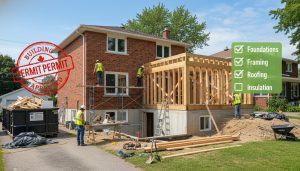Can I challenge a restrictive covenant on a
property?
Think you can wipe a restrictive covenant off your title? Read this — and act.
Quick answer
Yes — you can challenge a restrictive covenant on a property, but you need a plan. Covenants are not untouchable. They can be invalidated, varied, or removed in the right circumstances. Do it without a plan and you waste time and money.
What a restrictive covenant is
A restrictive covenant is a rule written into a deed or land title that limits how land is used. Common limits: building height, use type, fencing, or business activity. It binds future owners until changed or removed.
When you can realistically challenge it
You can challenge when one of these applies:
- The covenant was never validly registered or properly executed.
- The covenant is ambiguous or too vague to enforce.
- The original purpose no longer exists (neighborhood character changed).
- The party who benefits from the covenant consents to a change.
- The covenant is illegal or contrary to public policy.
Each case is fact-based. The best challenges use documentary proof and precedent.

Step-by-step plan to challenge a restrictive covenant
- Pull the land title and full deed. Know the exact wording.
- Identify beneficiaries listed in the covenant. Who enforces it?
- Check registration and execution dates against local law.
- Look for ambiguity or outdated terms.
- Ask beneficiaries for consent — a written release can end the fight fast.
- If consent fails, prepare for a court or land titles application with a property lawyer.
Do this in this order. Skipping steps wastes leverage.
Evidence and documents you need
- Registered deed and land title history.
- Any historical plans or neighborhood bylaws.
- Proof of changed circumstances (photos, municipal changes, land use shifts).
- Correspondence with the covenant beneficiary.
Strong, organized documents make or break a challenge.
Timeframe and cost expectations
A simple release from a beneficiary can take weeks and minimal cost. A legal application can take months and cost thousands. Budget for legal fees, expert reports, and possible court costs.
Why you need local market expertise
Real estate law is local. Procedures, forms, and courts differ by province or state. You need someone who knows how local registries work and how judges in your region treat covenants.
Tony Sousa is a local realtor who handles legal & documentation issues every day. He helps homeowners assemble clean title packs, find the right property lawyer, and negotiate releases with beneficiaries. With Tony’s experience, you avoid rookie mistakes and speed the process.
If you own a property with a restrictive covenant and want a direct next step, contact Tony Sousa: tony@sousasells.ca | 416-477-2620 | https://www.sousasells.ca
This post is authoritative but not legal advice. Always consult a qualified property lawyer before starting a legal challenge.





















